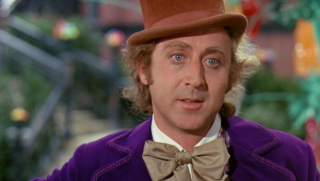Unknown to most of us, Gene Wilder suffered from Alzheimer’s disease during his final years. Mr. Wilder decided early in his diagnosis not to disclose his medical condition to the world. His family quietly dealt with the pain of caregiving and memory loss in a quiet and secluded way. After Mr. Wilder’s peaceful passing in his home, which came after a family chicken dinner while he listened to “Somewhere Over the Rainbow,” his nephew made an official statement about his death, and then the family went back to mourning the loss of a beloved member.
As an attorney, I immediately imagined what planning must have gone into this decision. I imagine the HIPAA forms that must have been signed to make sure the medical records of someone so famous stayed under wraps. Mr. Wilder must have had a strong personal care plan with wonderfully explicit direction to direct that, when he remembered nothing, his family should have his favorite meal and listen to his favorite song as he passed amid them all.
 But mostly, I imagine the moment when it could have all gone wrong from a legal perspective. I imagine that moment when a doctor or lawyer told the family that Mr. Wilder could no longer make his own decisions. I wonder how that moment went, but I will never know. There were no court hearings about Mr. Wilder’s competence or who would control his fortune. There were no tabloid articles written. So, while we will never know what Mr. Wilder chose for us not to see, I do believe one thing to be certain. Gene Wilder must have had a strong trust plan in place, with dependable trustees, a solid disability panel and a watchful trust protector.
But mostly, I imagine the moment when it could have all gone wrong from a legal perspective. I imagine that moment when a doctor or lawyer told the family that Mr. Wilder could no longer make his own decisions. I wonder how that moment went, but I will never know. There were no court hearings about Mr. Wilder’s competence or who would control his fortune. There were no tabloid articles written. So, while we will never know what Mr. Wilder chose for us not to see, I do believe one thing to be certain. Gene Wilder must have had a strong trust plan in place, with dependable trustees, a solid disability panel and a watchful trust protector.
Often when creating trust plans, attorneys focus only on who will get property, at what time and in what manner. Certainly those are important prongs of a complete plan to focus on, but they are not the only issues. A solid client-centered plan will also focus on who will fulfill each crucial role of making sure the client’s plan is carried out when it is funded, after he becomes disabled and upon his death. A trustee or successor trustee should be selected with care and thought. And, by using age restrictions, powers of appointment and remarriage restrictions, a trustee can be guided in the exact direction the grantor intended for his estate plan.
A trust protector can be appointed to offer protection to the trust estate and the beneficiaries against any law changes, trustee vacancies and/or disputes that arise in the estate. A trust protector’s ability to restate or amend a trust, appoint a trustee or settle a family dispute can eliminate the need for an expensive and public court hearing on a private family issue. Trust protectors, usually attorneys, are the perfect parties to offer their clients the security of knowing that the plan they drafted has an outside eye ready to look over and protect the intent of the original plan.
Finally, I have no doubt that Mr. Wilder’s final years would not have been as private had he not had an excellent disability panel in place. A disability panel – a group of individuals hand-picked by the grantor who will decide when he is incapacitated for purposes of being trustee of his own estate – can make a determination of incompetence. By determining the incapacity of a grantor as a group, the disability panel can eliminate the need for a court hearing to declare the incapacity of a grantor. I cannot imagine the security a hand-selected disability panel must offer to people like Mr. Wilder who know that the day they need someone to take over is fast upon them and that it can be done with no court interference or adverse action by the family.
We are fortunate at Lawyers with Purpose to have client-centered drafting software that allows us to produce documents that take into account the need for disability panels, trust protectors and all of the other practice tools listed above that might be necessary to meet a client’s goals.
I am positive that Mr. Wilder would be thankful for our ability to help clients through client-centered planning. I am certain of this because Mr. Wilder’s family spoke of why he made the decision to keep his prognosis and struggle private. He did so because he did not want the children of the world to see Willy Wonka as a sick, elderly man. I believe Willy Wonka himself best defined Mr. Wilder’s actions leading up to his death: “So shines a good deed in a weary world.”
If you want to learn more about becoming a Lawyer With Purpose, join us in Houston October 26-28 for the Tri-Annual Practice Enhancement Retreat. Click here to see the full agenda and reserve your seat now!
Kimberly M. Brannon, Esq., Legal-Technical and Software Trainer

